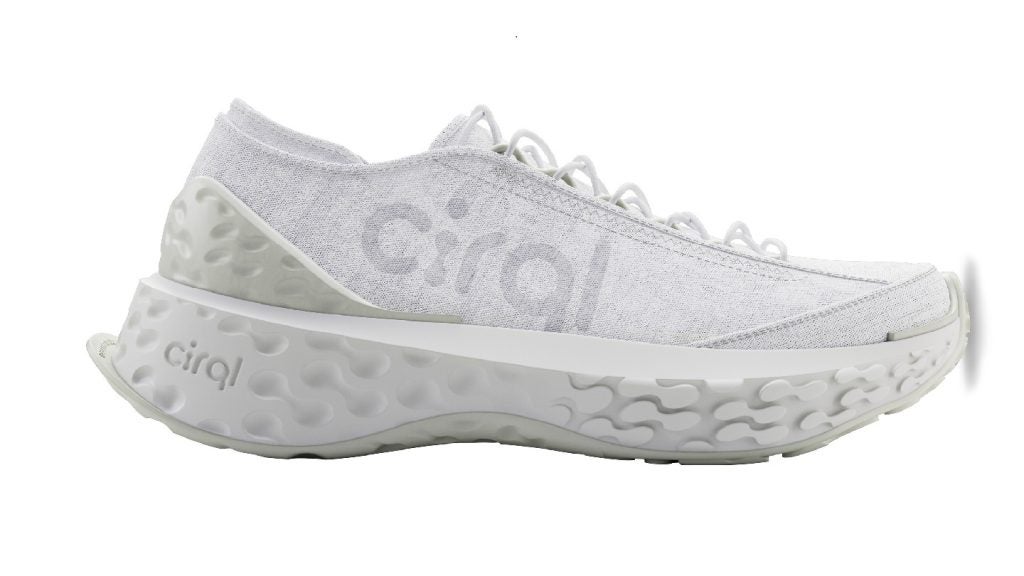Cirql Zero uses a proprietary polymer compound produced through supercritical foaming with inert gases. This results in a midsole material that is lightweight and comfortable, as well as being resilient and customisable for various footwear categories. It meets the industrial compostability standard by degrading 90% within 180 days, the company explained.
In terms of production flexibility, Cirql Zero can be manufactured with supercritical foaming technology in an autoclave process. This versatility facilitates widespread adoption by accommodating different manufacturing setups and expediting integration into existing manufacturing lines.
It stands as the first midsole foam capable of scaling production to meet global demands, estimated to be hundreds of millions of shoes annually.
Cirql extends its sustainable solutions to footwear brands and their manufacturing partners aiming to enhance sustainability within their supply chains and reduce negative environmental impacts from production practices.
Cirql vice-president and general manager Matt Thwaites said: "Footwear brands have been searching for a trusted, fully biodegradable midsole material for many years; it's the last piece of the puzzle.
"The midsole has always been a challenge because brands need the performance properties to go with the compostability of a biodegradable midsole. After a diligent development and testing process, we can now provide a price-competitive, scalable, industrially compostable and biodegradable midsole component and material solution to our global footwear brand customers. I'm very proud that Cirql is able to work toward democratising less impactful footwear materials."
The company emphasises transparency and traceability in its operations and has recently achieved GRS certification for its Vietnam facility on 21 November.
Cirql Zero, which will be available beginning in January 2025, is one of the two fully recyclable options offered by Cirql with the other being rTPU30.
Launched in April this year, the patented product rTPU30 midsole foam incorporates 30% post-consumer recycled TPU material. Produced via a chemical-free supercritical foaming process, rTPU30 aligns with climate and sustainability objectives due to its scalability and full recyclability.
In March 2022, OrthoLite introduced Cirql to the industry, which has since expanded its sustainable material offerings two years later.
These launches support the company’s aim of reducing the number of shoes ending up in landfills by offering end-of-life solutions for footwear materials that are recyclable and biodegradable with manufacturing flexibility and scalability.
"We're very proud to offer our revolutionary midsole solutions. With Cirql rTPU30 and now, Cirql Zero, our team is ready to provide the global footwear industry trusted, scalable, end-of-life solutions that are much needed by brands to reach their own climate goals," Matt Thwaites added.
Cirql maintains affiliations with several environmental organisations including The Conservation Alliance, The European Outdoor Conservation Association, Textile Exchange, and the Two Ten Foundation.
OrthoLite’s clientele includes prominent brands such as Nike, Adidas, Asics, and The North Face.
In March last year, OrthoLite partnered with Italian bioplastics company Novamont to create a plastic-free, fully recyclable foam material for shoe insole.









